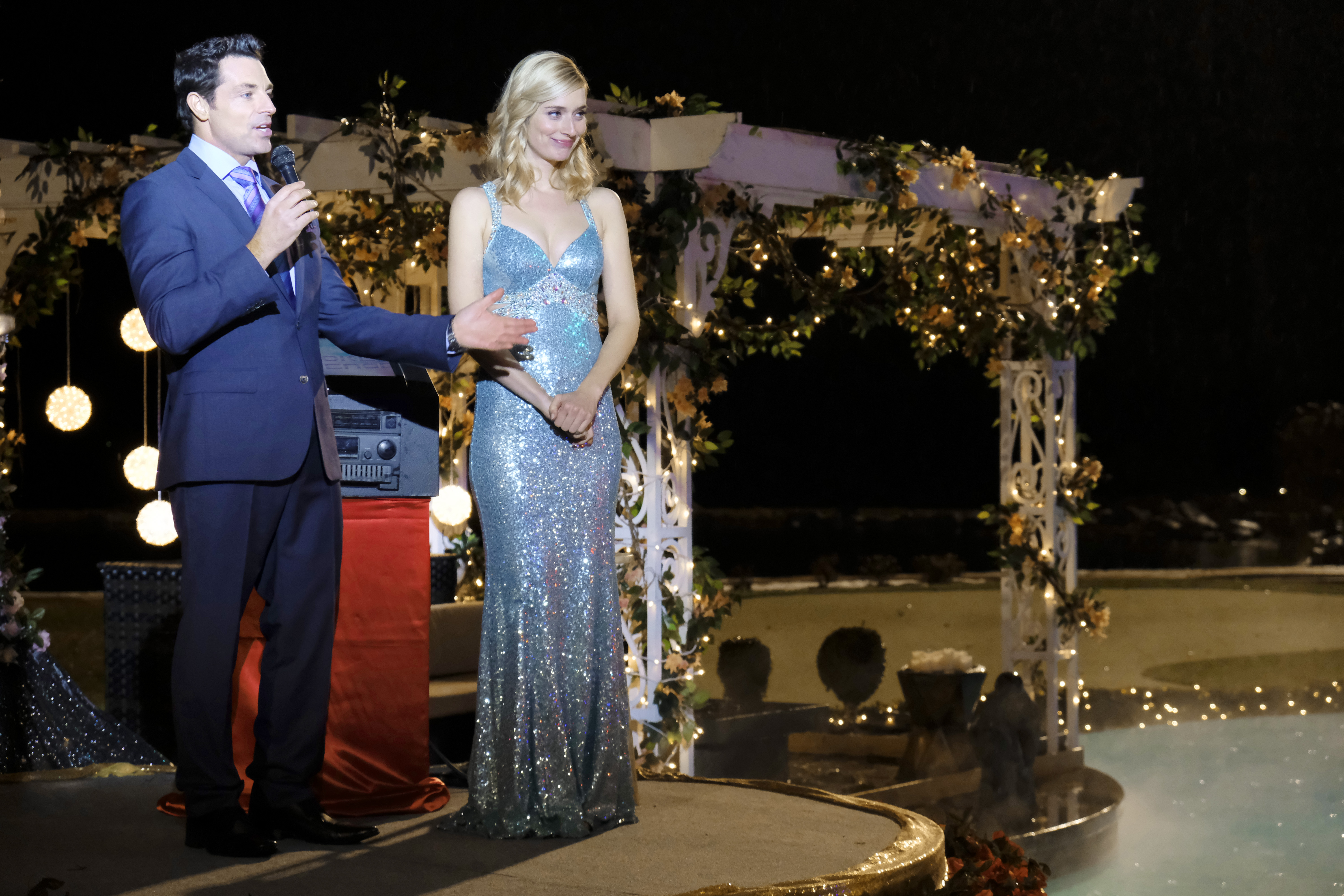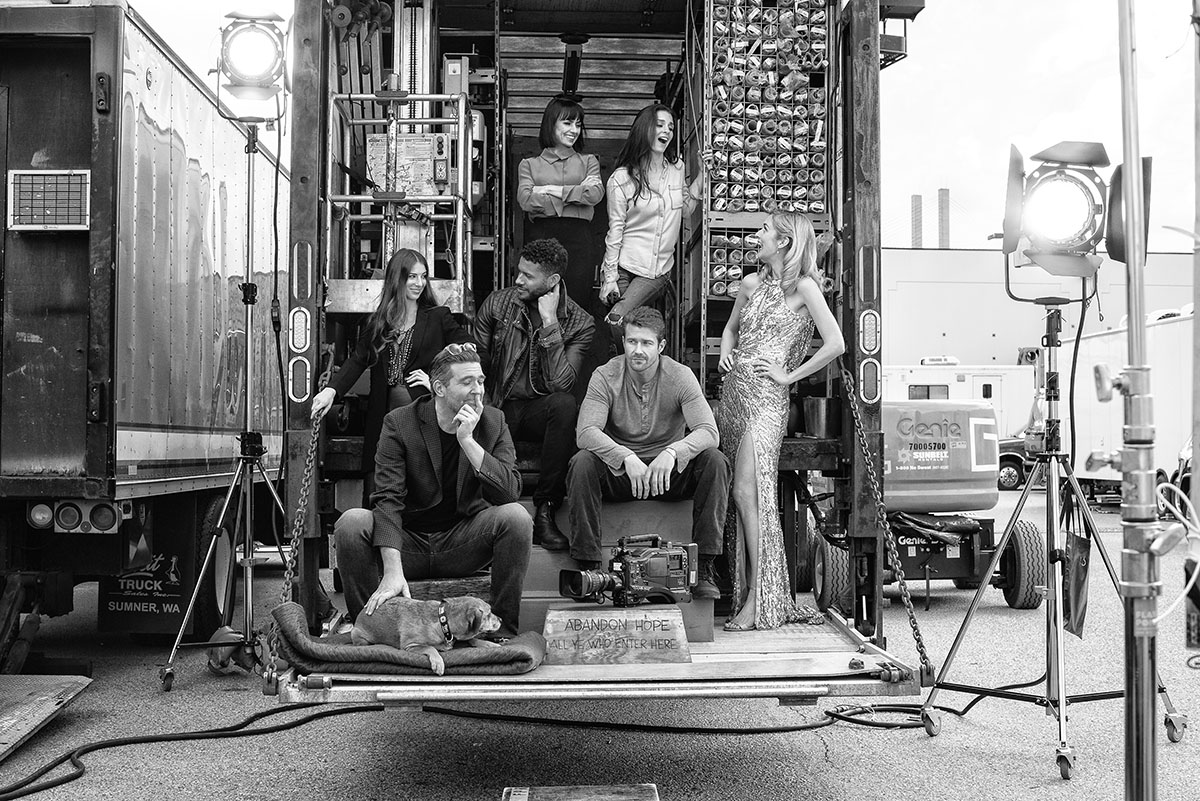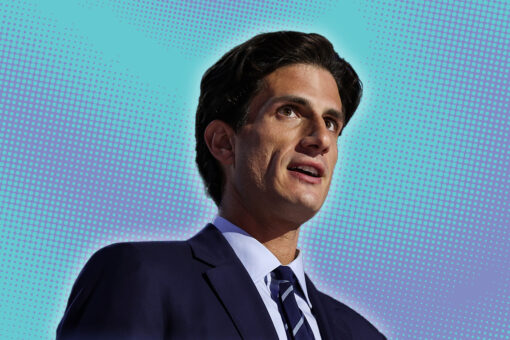Lifetime’s scripted series UnREAL would be a perfectly acceptable guilty pleasure. With all the hallmarks of a melodrama — cat fights, nefarious scheming, love triangles upon love squares upon love decahedrons — it feels like a lot of other guilty pleasures. The premise itself points there: a front seat view of the worst behavior taking place behind the scenes of a show like The Bachelor.
Except it wasn’t a guilty pleasure for me, because Season 1 of UnREAL was actually, genuinely good. The protagonists are Rachel Goldberg (Shiri Appleby) and her boss, Quinn King (Constance Zimmer), two women who run the dating reality show Everlasting. They believe they stand in stark feminist contrast to the tall, coiffed, and poised female contestants trying to woo the Suitor (their version of the “Bachelor”) — a crutch they lean on as evidence of their intellectual superiority. Rachel has a history of mental illness, which Quinn exploits to get her to stay on Everlasting. These two women manipulate the people around them and betray each other and love each other and are extremely good at their jobs.
In Season 1, the Suitor is a standard white dude. In Season 2, UnREAL ups the ante with a black Suitor. Unfortunately, Season 2 of UnREAL suffered from a sophomore slump to the extreme. Piling on the drama, the show took several missteps. Its (mis-)handling of Black Lives Matter was widely considered crude and offensive, with an episode of a white cop shooting a black man airing in the same month that Alton Sterling and Philando Castile were shot. And in what the New York Times called “the laziest possible back story for a woman character,” Rachel’s manipulative tendencies are explained away by a past experience with sexual assault. These blunders, along with some grievous character and plot inconsistencies, made the show feel uneven, batshit crazy, and a lot less fun. I was, like, several miles past guilty pleasure at this point.
So that’s what’s at stake for Season 3, which premiered on February 26. I’m rooting for a return to form at this point — UnREAL has enough going for it in terms of female leads and (often misguided) attempts to deal with significant issues that anything even marginally better than the dumpster fire of Season 2 would keep me watching.
In the premiere of Season 3, Quinn catches up with Rachel on a cult farm where she’s been working for the past six months, living in zealous honesty. Lying, Rachel determines, was her problem all along. She vows to speak only the truth from here on out. (She’s also vowing celibacy. Good luck.) This maxim certainly stirs up trouble when she returns to the set of Everlasting and encounters Chet (Craig Bierko), the founder of the show who has both professional and personal history with Quinn, and toward whom Rachel has plenty of (honest) negative feelings toward.
This season of Everlasting features a female “Suitress” for the first time. (Am I the only one who thinks that “suitress” sounds like a medical device?) Serena Wolcott (Caitlin FitzGerald), billed as “the female Elon Musk,” is tall and blonde with lovely cheekbones, she’s extremely smart and wealthy, she’s 32 years old, painfully single, and she’s tired of brunch with married people.

Warning: some spoilers ahead.
Serena’s contestants are all sexy man candy, but with only the space of an episode they each fall under a stereotypical category (or stripper persona, your choice): the investment banker, the fireman, the hippie, the cowboy, the recovering drug addict (who’s also a ballet dancer? who clearly is not an actual dancer? but who am I to argue with that many abs?). The butt of the jokes in the first episode is Norman (Joe Abraham), a jockey who stands a foot shorter than Serena. Sober Serena cuts him immediately, angering Quinn. Rachel then plays on Serena’s insecurities and convinces her that she’ll earn America’s good will by kissing Norman instead. So Serena agrees to this preposterous suggestion by taking a shot and going for it. After a couple more shots, she and Norman wind up doing it doggy-style in the bathroom — after which she cuts him anyway.
Quinn clues in a little too late to the possible reason why Rachel wanted a smart Suitress in the first place, and she tries to nip it in the bud. She yells at Rachel: “[Serena] is not the avatar for you or me, nor is she the ambassador for smart women everywhere. She is the star of a reality television show that I have to make work… The most feminist thing you could do, right now, is help me.”
This is an interesting meta-comment on the show itself: Much of UnREAL is centered on how the characters reconcile their ethics with the role they agreed to play for the job and the money or power it affords them. Rachel is constantly battling her ideals for the show, feminism cringing as she asks Serena for more cleavage, morals taking a backseat as she begs for a contestant to stay on under false pretenses. Beneath the aspects sensationalized for television, the show asks this question over and over again: How far are you willing to go to compromise on your values?
That the characters share a struggle doesn’t make them any more sympathetic to each other. They’re friends, but that’s a relationship that can also be sacrificed for the sake of the show. That’s the tension that makes UnREAL compelling, though: By constantly making the characters reconsider how far they’re willing to negotiate their own integrity, you have to wonder how much of them will be left in the end.
I’m just hoping that, unlike with Season 2, I won’t have to compromise my own values to enjoy what should be quality TV.
Header image courtesy of Lifetime; other in-text image by Bettina Strauss.



